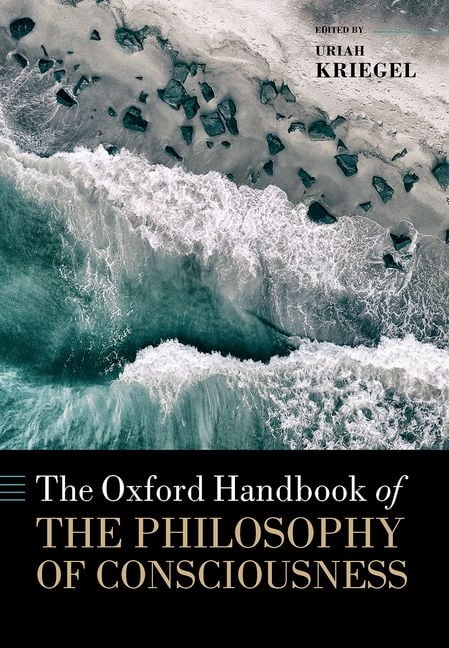If you like reading about philosophy, here’s a free, weekly newsletter with articles just like this one: Send it to me!
The handbook under review collects 31 unpublished papers of varying length (they range from 14 to 32 pages, including bibliography, with a majority of them having ca 20-25 pages).
Uriah Kriegel has not only edited it, but contributed one of chapters and an introduction. As he explains in his introduction “What is the Philosophy of Consciousness?”, the volume has been prompted by a concern that, for all its progress, science is not able to answer all the questions that are relevant to consciousness; hence philosophical supplementation is necessary for a full understanding.
The volume’s scope is limited by questions concerning conscious experience being either grounded in or dependent upon three kinds of phenomena: (i) other types of conscious experience, (ii) psychological phenomena other than conscious experience, and (iii) non-mental processes or states.
The papers are grouped into three sections: (i) “Varieties of Conscious Experience” (reminiscent of the title of Kriegel’s 2015 book) – chapters 2-10, (ii) “Theories of Consciousness” – chapters 11-22, and (iii) “Consciousness and Neighboring Phenomena” – chapters 23-31. The volume ends with an index that is certainly helpful but, alas, too selective. Below, I survey the 31 chapters and conclude with a more general word.
David Papineau (“The Problem of Consciousness”) investigates how consciousness relates to other features of reality. Although physicalism is a dominant philosophical position, many, including physicalists, find it hard to believe in mind-body identity. Papineau remarks that it is a strange fact that even those who deny dualism cannot, or do not, avoid dualist phraseology. In their accounts, they repeatedly speak of brain processes that cause or generate (or the like) conscious states. This fact reveals that there is, or may be, some truth in intuitive resistance to physicalism.
Pär Sundström (“Visual Experience”) studies visual experiences, in particular their transparency, the kind of properties they display, and whether they present external spatiotemporal particulars. He remarks that it does not have to be the case that “if two experiences […] are the same in what they are like, they must be the same in what they are phenomenally of” (p. 58), because the agent may be simply unable to distinguish the two experiences. Accordingly, the idea that an agent is in direct contact with outer, spatiotemporal objects is under various threats.
Casey O’Callaghan (“Non-Visual Perception”) covers forms of perceptual consciousness other than visual, viz. hearing, touch, smell, and taste. He focuses on exteroceptive and sensory forms of perception. Various sense-experiences may occur simultaneously, and in some …
Read the full article which is published on Daily Philosophy (external link)








